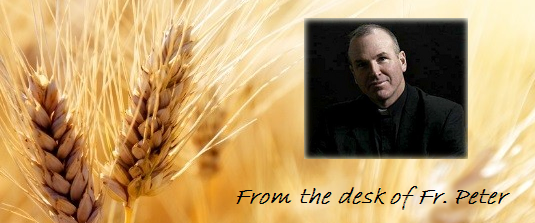Peace and grace to you!
The readings this weekend lead us to reflect on our life of prayer with the Lord. In the first reading we get an insider’s view of Solomon’s heart and deepest desires as he prays to God. Solomon was praised for his wisdom during his lifetime and through the centuries, so we know that God granted his desire. When we read his prayer, we understand why—he isn’t asking for something selfish. Solomon understands that he needs God’s help more than anything else to serve as a leader and so he asks for wisdom to serve God in his office as leader. St. Paul’s wisdom is shown through his spiritual insight “that all things work for the good of those who love God.” No matter what it is: trial or ease, hunger or feast, persecution or peace, sickness or health, wealth or poverty, in all these things the one who loves God grows closer to him. In the Gospel, Jesus explains that the kingdom of heaven is the greatest wealth and treasure that anyone could ever have. Jesus is telling us that there are a lot of things in the world that demand our attention and capture our interest but the most important and lasting thing of all consists in our lively, personal relationship with God.
One of the principal ways that we experience God’s abiding presence within us is through prayer. Like you, I have had to work very hard to develop a discipline and routine of prayer. Prayer is easy when there is the sweetness of spiritual consolation. But prayer is much more difficult during the arid periods and when we are too busy or when we don’t feel like it or when we don’t think that God cares or hears us, or we’re too tired, or whatever. Through all these changing emotional climates, thoughts and conditions, prayer must continue even if it seems of no use or accomplishment. Our faithful practice of prayer leads us into remembering that God is always present and actively assisting us! There are many types of prayers and devotions that people feel drawn to. The Rosary, The Liturgy of the Hours, periodicals like the Magnificat or Give us this Day. Lectio Divina is spending quality time in God’s Word each day and the weekday Mass readings are always a rich source of spiritual nourishment. Choose what works for you. God bless you always! +++ Fr. Peter

